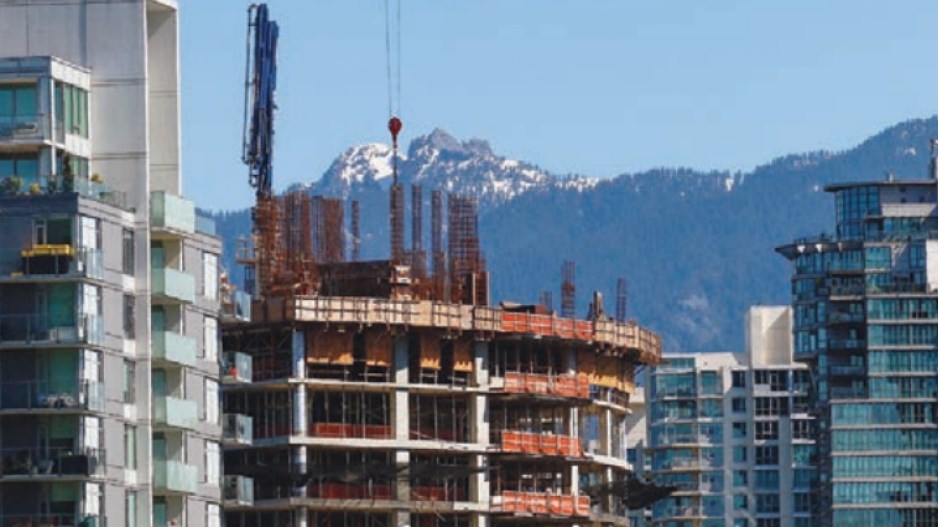B.C. and Metro Vancouver’s path forward in the housing crisis will rely on creating more certainty to deliver supply and speeding up processes surrounding approval and development.
Housing Minister Ravi Kahlon made that assertion Wednesday (April 5) in a pre-recorded address at the Vancouver Real Estate Forum. He said part of this certainty will come from efforts to digitize the permitting process.
Part of Kahlon’s address also expanded on the BC Builds program and described how the province will use government-owned land to build housing.
“We have tools within the government, on government-owned lands to be able to move through in a faster way. We are going to use every tool we have to identify land opportunities, partner with the private sector to build it and remove as many impediments as we can to get the housing built out,” he said.
More information on BC Builds will be released in the fall, he said.
Kahlon also spoke on his intent to introduce a digital permitting process.
Meanwhile, other avenues to achieve certainty will come from simplifying building codes, prioritizing infrastructure upgrades and increasing the pace of change, according to Surrey Mayor Brenda Locke and Vancouver Coun. Kirby-Young who both spoke on a panel following Kahlon’s address.
“We're waiting four years, five years to get shovels in the ground. When you have people that live in encampments and have people that can't find housing, that is too long,” Kahlon said.
Kirby-Young described the permitting process, going from project creation to getting shovels in the ground, as “antiquated.”
The province announced its intentions in January to create a “one-stop shop” for permitting and approvals that would speed up the process and prioritize the most impactful projects.
Locke said Surrey is starting to use a digitized approach to permitting and will continue to do this moving forward. She also highlighted how she is personally monitoring the city’s planning department to ensure projects are moving forward in a timely manner.
When asked about how to support more developers through this process, Locke gave out her phone number to the crowd and told anyone having permitting issues to call her.
The digital process highlighted by Kahlon is meant to create certainty for developers by reforming how development cost charges and community amenity charges (CAC) are calculated. More information on this will be available in the coming days, the minister said.
The City of Vancouver is also introducing more support on the financing side by implementing fixed-rate CACs, according to Kirby-Young. This is meant to allow for less negotiating time and less uncertainty when it comes to project cost.
“We have less of a density issue than we do a delivery issue,” said Kirby-Young.
She said that the city still intends to deliver on Mayor Ken Sim’s promise of a 3-3-3-1 permitting process. With this, it would take three days to approve home renovations, three weeks to approve single-family homes and townhouses, three months to approve multi-family and mid-rise projects with zoning in place and one year to approve high-rise or large-scale projects.




